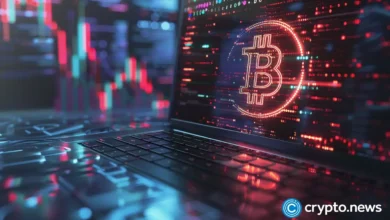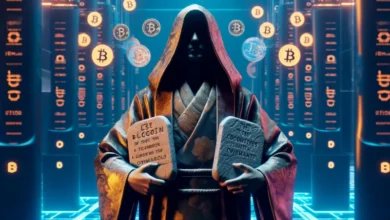Solana network plagued by bot spams, record number of transactions fail

The growing popularity of memecoins has taken a toll on the Solana network, as the blockchain witnessed 75% of its transactions fail on April 4.
According to data from Dune Analytics, a significant portion of the “non-vote” transactions on the network had failed, the highest ever recorded to date. Per Solana, non-vote transactions refer to SOL transactions within the network.
The surge in failed transactions has drawn in criticism from the cryptocurrency community, with users complaining about the poor user experience.
Memecoins on the Solana network have been a major talking point over the past months. Since the start of the year, countless new meme coin projects have gone live on the network, with some posting massive gains.
The surge in meme coin prices has resulted in trading bots being deployed on the network. These bots aim to make arbitrage trades, and when this arbitrage doesn’t exist, these trades fail.
According to Helis CEO Mert Mumtaz, these failed transactions, which he labeled as “bot spam,” constituted the vast majority of the failed transactions on Solana.
“This is usually not a big problem for users,” Mert wrote in an X post.
“Your wallet will simulate the [transaction] and let you know that it will not work beforehand anyway,” he added.
Mert explained that Dune’s failed transactions chart wasn’t an ideal way of assessing the user impact on the Solana network. “Most users don’t make it there to begin [with],” he continued, adding that most of the spam activity on the network transpires before the scheduling process.
The scheduling process is an operational algorithm within the Solana network that determines the order in which the transactions will be processed on the block. Bots are generally faster than humans when it comes to spamming, and as a result, user transactions are often dropped.
“Bots spam better than humans, so users get the worst end of the stick and get dropped the most,” he wrote.
The CEO also highlighted that since spam activity occurs ahead of the scheduling process, raising transaction priority fees won’t help users trying to execute transactions at the moment. According to him, “increasing [priority fees] above a certain median” will be a “waste” of the user’s money.
“Networking patches are what’s required, and those are rolling out soon,” Mert wrote, adding that the upcoming 1.18 Solana upgrade might not be able to resolve this.
At the time of writing, SOL was down more than 7% over the past 24 hours as the broader sentiment about the token turned bearish. Amidst this backdrop, a Solana-based meme coin project has reportedly scammed users off $906,000 worth of SOL tokens, further adding to the downturn.






